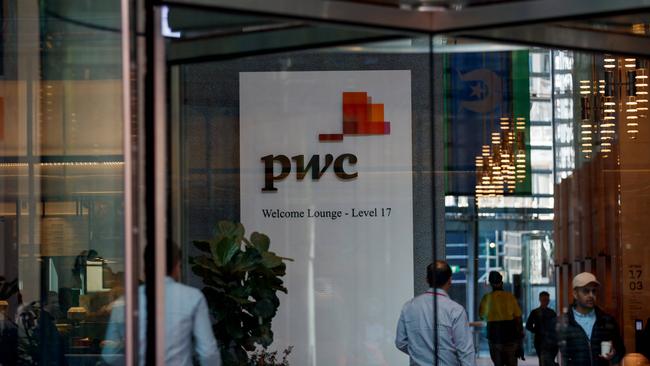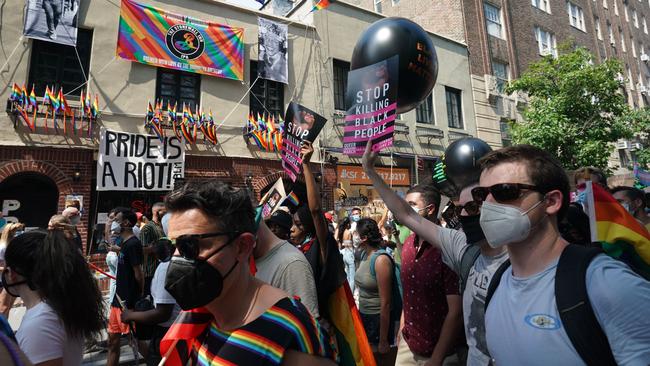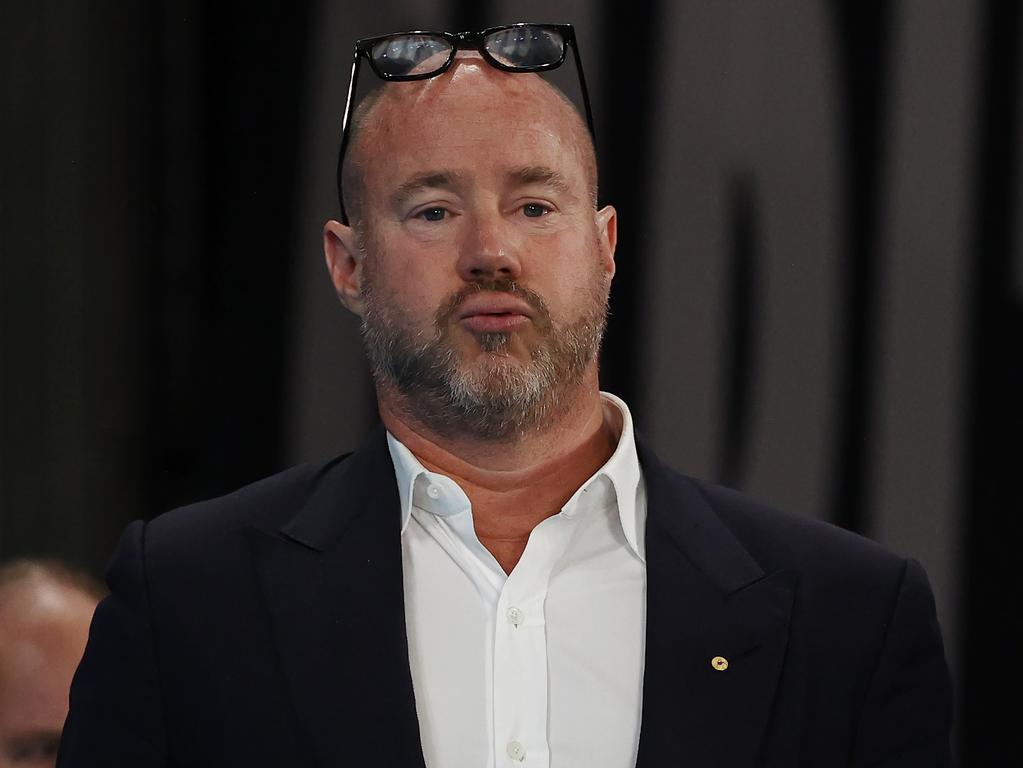
PwC Australia acting chief executive Kristin Stubbins last week blamed the scandal that ended the career of her former boss last month on “a culture of aggressive marketing” that had “allowed profit to be placed over purpose”.
Leaving to one side whether the term “inappropriate behaviour” adequately describes the disclosure of confidential government tax information to clients, Stubbins’s open letter of contrition raises an interesting question: if the profit motive is a distraction, what exactly was PwC put on Earth to do? The mission, to which she alludes, is articulated in PwC’s global statement of purpose: “To build trust in society and solve important problems”.
Like other corporations that adopted the wokenomic business model, PwC has transitioned from a market-driven entity to one that identifies as a not-for-profit dedicated to a nobler cause than delivering a return to investors. “Our high standards of ethical behaviour are fundamental to everything we do,” it states in its official corporate documents. “Our values define who we are, what we stand for, and how we behave.”
The embarrassment sweeping PwC’s local division is a manifestation of the global crisis in woke capitalism. The claim of higher ethical standards has been exposed as a sham. No amount of rainbow-washing will remove the stain from PwC’s reputation.
The business case for LGBT+ inclusion was set out in a recent report by PwC. It estimated the global spending power of LGBT+ consumers to be more than $5 trillion. The “Ally Marketplace” of consumers who identify as fellow travellers with the LGBT+ community was eight to 10 times bigger.
It claimed 78 per cent of LGBT+ people and their friends, family and relatives would switch to brands known to be LGBT+ friendly. More than 80 per cent of LGBT+ and non-LGBT+ millennials say an employer’s diversity and inclusion policies are an important factor when deciding whether to work for them.
PwC Australia has followed its own advice to the letter as a sponsor of last November’s Australian LGBTQ Inclusion conference in Melbourne. Former CEO Tom Seymour used his platform in the conference’s brochure to boast of PwC’s “inclusive culture which embraces differences – one that allows us to live our values every day, be ourselves and to feel empowered to realise and discover our potential”.


Perhaps this frivolous diversity gibberish did come from the heart and was not cut and pasted from countless other statements assuring us of PwC’s faithfulness to the official religion of our day. Or perhaps it meant nothing more than the removable rainbow tattoos worn by those who feel the need to show they care.
Either way, the cracks are appearing in woke corporatism, highlighted by a consumer backlash that has taken tens of billions of dollars off the value of US shares. Anheuser-Busch’s market value has fallen by $US27bn since April 1, the day Dylan Mulvaney, a man who identifies as a woman, announced his partnership with Bud Lite. Jared Dinges, beverage analyst at JPMorgan Chase, said: “We believe there is a subset of American consumers who will not drink a Bud Lite for the foreseeable future … we do not expect the lost sales to be recovered in fiscal year 2024.” An Anheuser-Busch spokesman said: “We want Bud Lite customers back, therefore Bud Lite is not going to get involved with political issues moving forward.”
Target in the US has lost $US13bn in market value since May 17 when it released its Pride collection of children’s clothing, which includes “tuck-friendly” female swimwear and other products. Other items in the collection include “gender fluid” mugs, “queer all year” calendars and books for children aged 2-8 titled “Bye Bye, Binary”, “Pride 1,2,3” and “I’m not a girl”.
Disney Corporation’s share price was already sliding when it was hit by a boycott in February last year provoked by its public opposition to a Florida law banning the teaching of sexual orientation and gender identity to children between kindergarten and third grade. It undoubtedly contributed, however, to the $US125bn loss in Disney’s market value in the past 16 months and the decision to sack 7000 workers in March.

It is alarming that a company the size of PwC failed to see the cracks in the woke corporate business model that have been apparent from the start. The “subset of American consumers” refusing Bud Lite is not as small as they imagine, and neither are their necks necessarily red. Shareholders of Anheuser-Busch, Target and Disney have every right to be angry that boards did not apply due diligence before partnering with a movement pursuing radical social goals.
Trans activists have done a remarkable job of portraying themselves as the bearer of the civil rights torch handed down through the ages. If directors had fulfilled their obligation to guard their shareholders against risk, however, it would not be hard to discover the radical, neo-Marxist, postmodernist motives of the activists and the threat they pose to our institutions, including the family.
Vivek Ramaswamy blew the lid on virtue-seeking capitalism two years ago in his book Woke, Inc: Inside the Social Justice Scam. “Here’s how it works,” he wrote, “pretend like you care about something other than profit and power, precisely to gain more of each.” The mistakes by Anheuser-Busch and Target suggest it is a short-term trick. The public will only put up with hypocrisy for so long, as PwC’s tumbling reputation attests.
The five rules of values-driven behaviour that PwC claims raises its company to a higher ethical plane have been rendered meaningless by the breach-of-trust scandal embracing the company.
As he tends his geranium bed Seymour might have cause to regret he didn’t pay more attention to the rule urging employees to “act as if our personal reputations were at stake”. We’ll leave it to his former colleagues to say how closely he followed rules two to four, “care”, “work together” and “reimagine the possible”. Seymour, however, can hardly be accused of failing to live up to PwC’s imperative that employees should “make a difference”, even if it wasn’t in the manner intended.
Nick Cater is senior fellow at Menzies Research Centre.







PwC’s global revenue topped $US50bn ($75bn) last year, more than the gross domestic product of Latvia or Bahrain but slightly below Slovenia. Not bad for a corporation where profit has become a dirty word.